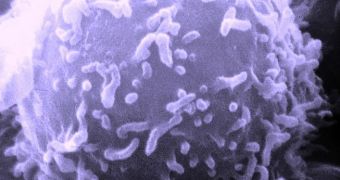Once oncologists discover a tumor in a patient, their primary objective is to ensure that the cells do not spread in the surrounding tissue, and then further in the body, Experts have now discovered a new protein that could make this job easier than ever.
The molecule identified in this study plays a significant role in guiding the development of blood vessels. As such, experts want to use it as a weapon to stop the flow of blood to the tumors.
Eventually, improvements brought to this approach could ensure that the cancer cells stop spreading once the protein-based therapies are applied, say investigators at the UT Southwestern Medical Center.
One of the most essential attributes of any tumor is the ability to trigger the development of new blood vessels to support its growth. Without the blood, there is no way for a tumor to support cell growth.
Therefore, in the absence of sufficient blood, it can no longer expand. While using this protein limits the spread of the cancer, it does not destroy the blood supplies that a tumor already established for itself. However, it does make it more susceptible to damage from drugs and radiation.
In the new experiments, which were carried out on mice, experts determined that the absence of the Ras interacting protein 1 (Rasip1) leads directly to no new blood vessel growth. This molecule is apparently critical to numerous cellular processes.
The announcement was made by UT Southwestern assistant professor of molecular biology Dr. Ondine Cleaver, who is also the senior author of a paper describing the findings. The work appears in the April issue of the esteemed journal Developmental Cell.
“What we’ve found is really the first factor that is important in all blood vessels for inner channel formation and tubulogenesis, i.e., the transformation of something that looks like a rope into something that looks like a garden hose,” Dr. Cleaver explains.
“Although this is still a mouse study, we feel that future studies of Rasip1 and the molecular processes under its control hold great promise to provide tools and models for advancing clinical therapies aimed at blocking vessel formation in tumors,” the investigator goes on to say.
Future therapies could be based on chemicals that block the action of Rasip1, although experts will first have to find a way of making the substances act locally. Once this ability is obtained, then cancer will receive yet another blow, Science Blog reports.

 14 DAY TRIAL //
14 DAY TRIAL //